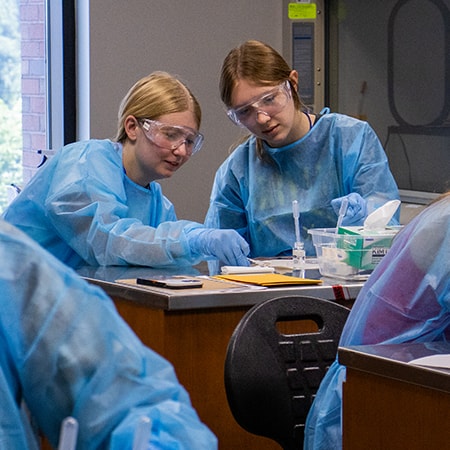Academic Interests
Program of Interest (Arts & Sciences)
Program of Interest (Business)
Program of Interest (Education)
Program of Interest (Engineering)
Program of Interest (Health Professions)
Program of Interest (Nursing)
Program of Interest (Optometry)
Program of Interest (Public Health)
Program of Interest (Dentistry)
Program of Interest (Medicine)
Concentration of Interest (Administration/Health Services) Please select...
Health Care Strategy
Health Informatics
Health Services Research
Concentration of Interest (Arts Education) Please select...
Arts Education - Art (Alternative Masters Program ONLY)
Arts Education - Music
Concentration of Interest (Business Administration) Please select...
Business Analytics and Information Technology
Entrepreneurship
Finance
Health Services
Management Information Systems
Marketing
MBA/Dentistry Program
MBA/Health Administration Program
MBA/Master of Engineering Program
MBA/Medical Program
MBA/MSN Dual Degree
MBA/Optometry Program
MBA/Public Health Program
Concentration of Interest (CIRTL) Please select...
Practitioner
Scholar
Concentration of Interest (Civil Engineering) Please select...
Construction Engineering Management
Environmental Engineering
Structural Engineering
Transportation Engineering
Concentration of Interest (Community Health)
Concentration of Interest (Counseling) Please select...
Clinical Mental Health
Marriage, Couples, and Family Counseling
Concentration of Interest (Cultural Heritage Studies) Please select...
Cultural Administration
Cultural Heritage
Concentration of Interest (Cyber Security) Please select...
Cyber Crime Investigation
Fraud Examination
Concentration of Interest (Dentistry) Please select...
Oral Biology
I do not wish to pursue a concentration.
Specialty Track of Interest (DNP) Please select...
BSN to DNP Nurse Anesthesia Pathway (DNP)
BSN to DNP Pathway (DNP) for Nurse Practitioners
Executive DNP Pathway (DNP)
MSN to DNP Pathway (DNP)
Nurse Leadership in Population Health (DNP)
RN to DNP Bridge Pathway (DNP)
Concentration of Interest (DNP) Please select...
Adult-Gero Acute Care Nurse Practitioner
Adult-Gero Primary Care Nurse Practitioner
Family Nurse Practitioner
Neonatal Nurse Practitioner
Pediatric Acute Care Nurse Practitioner
Pediatric Primary Care Nurse Practitioner
Psychiatric/Mental Health Nurse Practitioner
Women’s Health Nurse Practitioner
Concentration of Interest (EdS in Education) Please select...
English as a Second Language
Kinesiology
Concentration of Interest (Educational Studies) Please select...
Early Childhood Education
Elementary Education
English Language Education
Physical Education
Secondary Education
Special Education
Special Education - Online
Concentration of Interest (Educational Studies in Diverse Populations) Please select...
Health Disparities within Diverse Populations
Context, Culture and Policy
Pedagogical Studies in Diverse Populations
Concentration of Interest (English as a Second Language) Please select...
English as a Second Language and French Certification
English as a Second Language and Spanish Certification
English as a Second Language Certification
Concentration of Interest (Health Administration) Please select...
Health Administration - Executive
Health Administration - Residential
International Healthcare Management
Concentration of Interest (Health Informatics) Please select...
Artificial Intelligence
Healthcare Data Analytics
Healthcare User Experience
Research Track
Concentration of Interest (Secondary Education) Please select...
Coordinated Biology (MS)/High School Education (MAEd)
Secondary Education - Biology
Secondary Education - Chemistry
Secondary Education - English Language Arts
Secondary Education - General Science
Secondary Education - General Social Sciences
Secondary Education - History
Secondary Education - Mathematics
Secondary Education - Physics
Concentration of Interest (Kinesiology) Please select...
Exercise Physiology
Physical Education
Concentration of Interest (Management Information Systems) Please select...
Cyber Security Management
Business Analytics with Information Technology
Concentration of Interest (MEng) Please select...
Advanced Safety Engineering and Management
Information Engineering Management
Structural Engineering
Sustainable Smart Cities
Concentration of Interest (MEngCEM) Please select...
International Dual Degree
Concentration of Interest (Materials/Mechanical Engineering) Please select...
Engineering Management
Research Design
Concentration of Interest (Interdisciplinary Biomedical Science) Please select...
Bioinformatics
Cancer Biology
Genetics and Genomic Sciences
Immunology
Neuroscience
Pharmacology
Specialty Track of Interest (MSN) Please select...
Adult-Gero Acute Care NP w/ Registered Nurse First Assist
Adult-Gero Acute Care Nurse Practitioner
Adult-Gero Primary Care Nurse Practitioner
Family Nurse Practitioner
Neonatal Nurse Practitioner
MBA/MSN Dual Degree
Nurse Educator
Nurse Management of Care Transitions
Nurse Midwifery
Nursing Health Systems Administration
Nursing Informatics
Pediatric Acute Care NP
Pediatric Primary Care Nurse Practitioner
Psychiatric/Mental Health Nurse Practitioner
Women's Health Nurse Practitioner
Specialty Track of Interest (Nursing Non-Degree) Please select...
Adult-Gero Acute Care Nurse Practitioner
Adult-Gero Primary Care Nurse Practitioner
Adv Forensic Nurse
Adv Palliative Care NP
Adv Prac Provider Mgmt Neurological Cond Aging
Emergency Nurse Practitioner
Family Nurse Practitioner
Neonatal Nurse Practitioner
Nurse Executive Certificate
Nurse Leadership in Quality and Safety
Nursing Teaching (Nurse Educator)
Pediatric Acute Care NP
Pediatric Primary Care Nurse Practitioner
Psychiatric/Mental Health Nurse Practitioner
Registered Nurse First Assist
Women's Health Nurse Practitioner
Track of Interest (Nutrition Sciences) Please select...
Clinical Track - Prior Learning
Dietetic Internship/Clinical Track
Dietitian Education Program
Lifestyle Management and Disease Prevention
Research Track
Concentration of Interest (PhD in Physics) Please select...
Applied Physics
I do not wish to pursue a concentration.
Concentration of Interest (Psychology) Please select...
Behavioral Neuroscience
Developmental Psychology
Medical Clinical Psychology
Concentration of Interest (Public Administration) Please select...
Public Administration and Criminal Justice (MPA/MSCJ)
Public Administration and Juris Doctorate (MPA/JD)
Concentration of Interest (DrPH) Please select...
Biostatistics
Health Policy and Organization
Maternal and Child Health Policy
Outcomes Research Track
Preparedness Leadership
Concentration of Interest (MPH) Please select...
Environmental Health
Environmental Health - ABM
Environmental Health - Fast Track
Epidemiology
Epidemiology - ABM
Epidemiology - Fast Track
Health Behavior
Health Behavior - ABM
Health Behavior - Fast Track
Health Policy and Organization
Health Policy and Organization - ABM
Health Policy and Organization - Fast Track
Maternal and Child Health Policy and Leadership
Maternal and Child Health Policy and Leadership - ABM
Physician Assistant Studies and Public Health (MPH/MSPAS)
Population Health
Public Health and Business Administration (MPH/MBA)
Public Health and Civil Engineering (MPH/MSCE or MPH/PhD)
Public Health and Doctor of Pharmacy (MPH/PharmD)
Public Health and Doctor of Veterinary Medicine (MPH/DVM)
Public Health and Health Administration (MPH/MSHA)
Public Health and Juris Doctorate (MPH/JD)
Public Health and Medical Doctor (MPH/MD)
Public Health and Nutrition Sciences (MPH/MS)
Public Health and Optometry (MPH/OD)
Public Health and Public Administration (MPH/MPA)
Public Health and Social Work (MPH/MSW)
Concentration of Interest (MSPH) Please select...
Applied Epidemiology
Biostatistics
Environmental and Occupational Health Sciences
Industrial Hygiene
Outcomes Research
Public Health and Medical Doctor (MSPH/MD)
Concentration of Interest (Special Education) Please select...
Collaborative Teacher K-6 and 6-12
Early Childhood Special Education
Concentration of Interest (MS in Physics) Please select...
Computational Physics
Materials Physics
Optics and Photonics
Physics Instrumentation


